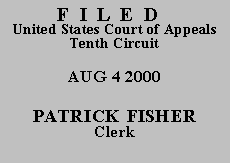

| REGINAL C. TONEY,
vs.
ANDREW CUOMO, Secretary of the
United States Department of Housing
and Urban Development |
|
In conducting our de novo review of the district court's summary judgment order, we have evaluated the parties' submissions in accordance with Fed. R. Civ. P. 56(c) and the standards set forth in Celotex v. Catrett, 477 U.S. 317 (1986), and Anderson v. Liberty Lobby, Inc., 477 U.S. 242 (1986), and the framework contained in McDonnell Douglas Corp. v. Green, 411 U.S. 792, 802-04 (1973). Our review confirms that Mr. Toney did not did not present sufficient evidence of pretext to challenge the legitimate non-discriminatory reasons for HUD's actions concerning the positions in question. We therefore affirm on that basis. Insofar as the alleged retaliation based upon HUD's loss of the ROI, we are doubtful that the loss, in and of itself, constitutes "adverse employment action" even given this circuit's liberal interpretation of the term, see Jeffries v. Kansas, 147 F.3d 1220, 1231-32 (10th Cir.1998); regardless, we affirm on the grounds that Mr. Toney did not establish a prima facie case, i.e. no causal connection between the protected activity and the alleged adverse employment action. See Perry v. Woodward, 199 F.3d 1126, 1141 n.12 (10th Cir. 1999).
AFFIRMED.
Entered for the Court
Paul J. Kelly, Jr.
Circuit Judge
*. This order and judgment is not binding precedent, except under the doctrines of law of the case, res judicata, and collateral estoppel. This court generally disfavors the citation of orders and judgments; nevertheless, an order and judgment may be cited under the terms and conditions of 10th Cir. R. 36.3.
**. After examining the briefs and the appellate record, this three-judge panel has determined unanimously that oral argument would not be of material assistance in the determination of this appeal. See Fed. R. App. P. 34(a); 10th Cir. R. 34.1 (G). The cause is therefore ordered submitted without oral argument.